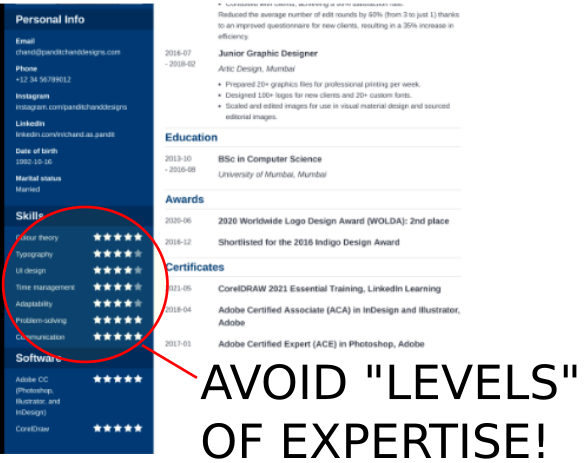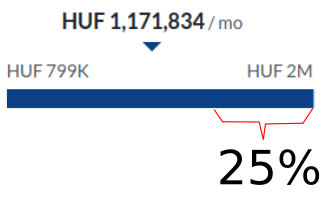10 lessons I wish I learned before changing jobs
I started my first job in embedded software engineering in 2015. Summer had blazed over the lakes in the city, and the last of the vacationers were splashing in the water to cool down. I’d just finished my thesis and was about to graduate from the Opole University of Technology. I was skinny, with curly hair that hadn’t been combed in ages. I was broke. I was living in a dormitory and were trying to find work with zero experience in software development. But I had a strategy!
TLDR
Ten lessons for changing jobs:
- Apply for any job you think you can do.
- Prepare a portfolio and your “sales pitch”, and polish CV.
- Know your worth, and go as high as possible in compensation.
- Follow up with an email after the interview.
- Use references.
- Practice doing interviews, apply for jobs regularly.
- Bet on yourself, and stay positive.
- Fail fast!
- Negotiate.
- Strategize the leaving time in a company.
Student story
If you have tried to find a job as a fresh graduate, with zero exposure to the industry, you know how hard it is! Companies want a young candidate with 10 years of experience, who will ideally take the lowest possible wage and work night and day. Getting a job offer is especially hard for foreigners. At least I managed to learn Polish language at the university.
To find a job, my strategy was to prepare tens of CVs, and search for positions in the local work portal: from mechanical engineering to software development, from equipment installation to hardware design. I spent days sending crafted papers to companies, getting zero interviews.
Unexperienced, scared, and stressed I went to the place where students should look first: University Career Center.
If you are a fresh graduate, it is one of the places to go, they have job postings, contracts with employers, and can help you to review the CV.
At the University Career Center, there was a job offer for the new local perspective investment, let’s call it “The Best Automation Company”, for an “Application Engineer” position.
The recruitment process at “The Best Automation Company” was lengthy: Initial screening with HR, technical conversation with a team, take-home test to present, and finally, meeting with the management.
For the management meeting, I crafted a presentation with all the projects I worked on at the university and presented it to the hiring committee.
When given a take-home test, I created the application in Codesys. I went even further, producing the animation of a working program and writing the follow-up email to the HR lady.
Those two aspects and my determination secured success. I got a job offer.
Getting a job is a “selling yourself” skill. After years as an employee, changing workplaces, getting fired, getting promoted, negotiating salary, and moving countries, here is what I learned about job search.
Lessons
-
Apply for every job you can do. Send CVs to every position you think you can do. This is a number game. This is a numbers game: your goal is to get through the resume filter. It is important to understand: Years of experience, technologies listed, and a job description, it is something the company wants, the list of desires. There is a scarce number of candidates who meet all the criteria. If you think you can do the job, apply.
-
Invest time in preparation. In the short story above, investing time in a good presentation carried me through the managment meeting. A Catchy CV is a golden pass for the interview. Good CV answers question about what you have done, how you have done it, and what impact it has. Does not matter if it is a student project or work experience: continuously work on your CV to make it polished as possible. If you have experience with the technology required, write it as a skill inside your CV. Don’t lie, but bend information in the direction a job posting requires. Remember, the CV is the ticket to the interview. Its purpose is to get you to the next step. You can check my CV as an example: Andrii Shylenko LinkedIn. Another tip about CVs is: don’t use the level of knowledge, it is pointless! Who even evaluates the level?
 I also keep a short portfolio and demo with projects I have built in the past. Each interview is the sales pitch. Sometimes people who do interviews are not even well prepared. By utilizing your portfolio you can channel the job interview in the direction which benefits you. Practice your personal “sales pitch” as much as possible.
I also keep a short portfolio and demo with projects I have built in the past. Each interview is the sales pitch. Sometimes people who do interviews are not even well prepared. By utilizing your portfolio you can channel the job interview in the direction which benefits you. Practice your personal “sales pitch” as much as possible. -
Know your worth. Congratulations! With a good CV, you got through the initial screening. The next step will be the call with the HR person. At some point, you will be asked about compensation. Ask what range of salaries do company has. If asked about expectations, give a range from the top 25% of the typical salary for a position. Let’s say, you know that people with your experience earn between 800000 HUF and 2000000 HUF, a range of 1700000 and 2000000 should be your answer (25% top percent of the typical salary).
 It is important to have a range window for negotiation basis. Your salary demand communicates to the company your level, don’t sell yourself cheaply.
It is important to have a range window for negotiation basis. Your salary demand communicates to the company your level, don’t sell yourself cheaply. -
Do follow-up emails.After an interview, send notes expressing what you liked and even what you disliked. If you have not finished the code in the interview, finish it as soon as possible, add notes of appreciation, your feedback about the interview, and send it.
-
Keep references handy. Maintain contact with your colleagues. It’s important to have good relationships with people you used to work with. In the future, you might need someone to vouch for you at a job interview. Sometimes companies require references from your peers and managers. My references allowed me to have good job prospects in the past.
-
Practice interviews. Make sure your LinkedIn profile is up-to-date, and apply for jobs regularly. Not only it keeps your opportunities in order, but you are getting an invaluable experience of interviews.
-
Maintain a positive frame. Assume you were successful in the interview. You will be surprised how low the bar is in some companies. Sometimes it is enough to join the interview and understand the domain the company works in. I got job offers for an embedded engineer in the past while NOT doing coding at all!
-
If it does not work, fail fast. It is important to cut out companies you don’t like. Cut them out as soon as you understand that job is not something you will enjoy. By failing fast you open yourself to possibilities that are a good fit.
-
Negotiate as your life depends on it. If you have experience, you hold the power. Ask what you want and back it up with your previous work and your results. Do not budge easily. Take your time. If you are a good specialist, you can negotiate almost any side of the company’s offer.
-
Don’t leave your current job without an offer. If you decide to change jobs, having offers gives you the ground for a strong negotiating position. Check for holidays, vacations, and other perks. By leaving at a right time, you can optimize the usage of company policies. For example, taking out a vacation or paternity leave will give you time to prepare for the next role and maintain your private health insurance.
Conclusion
Hope this list will help you to secure the job you want. It is important to have a vision for your career and life, before making any job decisions, ask yourself if the next position is moving you closer to your goal?
My bonus 11’s point will be: Never fear to change jobs when it benefits your personal goals. The price of wasted time is much higher compared to the price of failing. Do not have guilt, the company will do just fine without you, but by changing jobs you get more money and faster promotions compared to staying with the same employer for a lifetime. Be selfish like the most villain capitalist.
